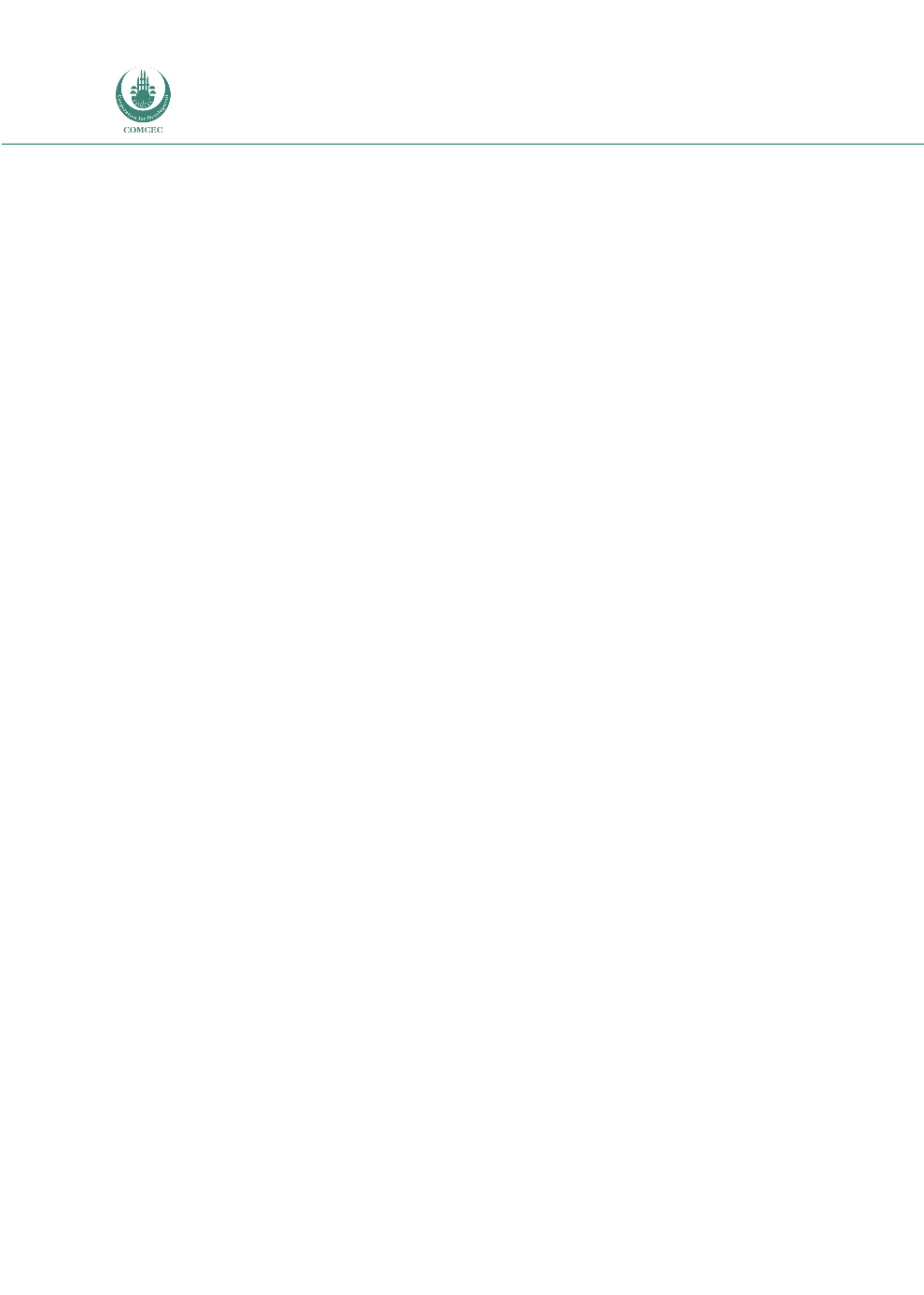

Risk Management in
Islamic Financial Instruments
52
early stage of development within their countries that implementation of the SAGs is not
warranted. RSAs in countries are able to reason in this manner since the SAGs are voluntary,
and, therefore, the IFSB does not have the power to enforce implementation of its
recommendations.
In addition, the RSAs have the authority to determine the timeline for implementation of the
SAGs. Currently, countries are in different stages of implementation with half of the IFSB
members working with a three to five year timeline and others with shorter timelines. As of
2011, the first published standard, IFSB-1, has only been fully implemented by three of 24, or
13 percent of the RSAs. Another 25 percent are in progress of implementing IFSB-1 while 38%
are planning to implement. 25%, or 6, of the RSA have opted not to implement IFSB-1. The
degrees of implementation are similar for the other IFSB publication standards. IFSB-2 and
IFSB-3 had the highest figures for complete implementation, with 24%, or 6, RSAs fully
implementing the standards. On the other side of the spectrum, IFSB-6 and IFSB-11 have zero
RSAs with complete implementation; instead, 64% do not plan to implement IFSB-6 and 59%
for IFSB-11.
Due to the low implementation rates, the IFSB took initiative to provide support for the
implementation process and to make the process easier for countries. The IFSB has created a
group of best practice standards for implementation. It provides technical assistance through
customized workshops for each of its member countries. In addition, the IFSB has created e-
learning programs to aid members on technical work and capacity building (IFSB 75-77).
The AAOIFI creates standards on accounting, auditing, governance, ethics, and Shariah for IIFS.
In 2012, the AAOIFI issued seven new standards on governance, ethics, and customer
protection. The more stringent standards were in response to the 2008 global financial crisis.
Additionally in 2012, AAOIFI revised accounting standards on real estate investments. In the
pipeline for the organization in 2013 were also plans to review standards on investment
accounts and Takaful and create new governance standards for the Shariah Supervisory Board
(IFSB 74).
3.3.4 International Islamic Financial Market
The IIFM is concerned with the Islamic capital and money market. Its work includes
standardizing Islamic financial products, documentation, harmonizing Shariah across borders
and promoting wider acceptance of Shariah, and providing a central platform for other
financial services bodies to come together. In 2012, the IIFM and the International Swaps and
Derivatives Association issued the
Mubadalah al-Arba’ah
(profit rate swap) product standard.
3.4. CAPITAL MARKET DEVELOPMENT
The Islamic capital market has been growing over the last decade with the development of
equity market indices, Islamic funds and sukuk markets. There are currently four major
Islamic index providers for equity markets: Dow Jones, S&P, MSCI, and FTSE . The indices are
used to benchmark the performances of Shariah compliant securities. The four indices cover

















